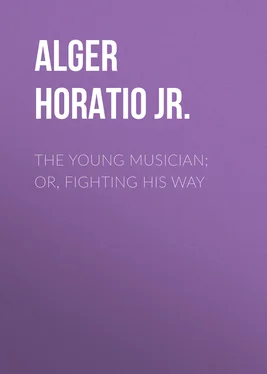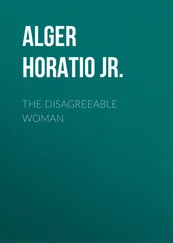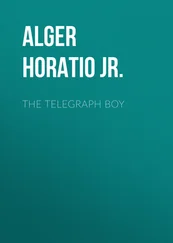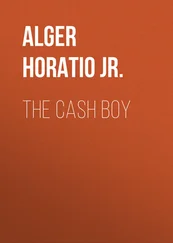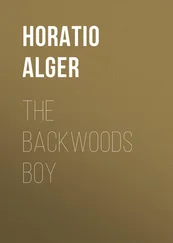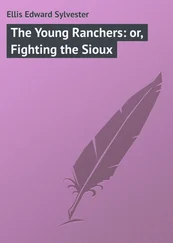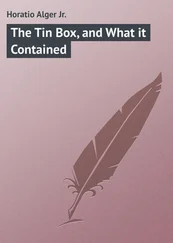Horatio Alger - The Young Musician; Or, Fighting His Way
Здесь есть возможность читать онлайн «Horatio Alger - The Young Musician; Or, Fighting His Way» — ознакомительный отрывок электронной книги совершенно бесплатно, а после прочтения отрывка купить полную версию. В некоторых случаях можно слушать аудио, скачать через торрент в формате fb2 и присутствует краткое содержание. Жанр: foreign_children, literature_19, foreign_antique, foreign_prose, на английском языке. Описание произведения, (предисловие) а так же отзывы посетителей доступны на портале библиотеки ЛибКат.
- Название:The Young Musician; Or, Fighting His Way
- Автор:
- Жанр:
- Год:неизвестен
- ISBN:нет данных
- Рейтинг книги:5 / 5. Голосов: 1
-
Избранное:Добавить в избранное
- Отзывы:
-
Ваша оценка:
- 100
- 1
- 2
- 3
- 4
- 5
The Young Musician; Or, Fighting His Way: краткое содержание, описание и аннотация
Предлагаем к чтению аннотацию, описание, краткое содержание или предисловие (зависит от того, что написал сам автор книги «The Young Musician; Or, Fighting His Way»). Если вы не нашли необходимую информацию о книге — напишите в комментариях, мы постараемся отыскать её.
The Young Musician; Or, Fighting His Way — читать онлайн ознакомительный отрывок
Ниже представлен текст книги, разбитый по страницам. Система сохранения места последней прочитанной страницы, позволяет с удобством читать онлайн бесплатно книгу «The Young Musician; Or, Fighting His Way», без необходимости каждый раз заново искать на чём Вы остановились. Поставьте закладку, и сможете в любой момент перейти на страницу, на которой закончили чтение.
Интервал:
Закладка:
“What do you mean, Nicholas?” demanded the squire, in a stately way.
“Why, seems to me he’s kinder settin’ up his will agin yours. You say the fiddle shall be sold, and he says it shan’t. He told me he didn’t care what you said, he should keep it.”
“Did he say that, Nicholas?” asked the squire, who felt that his dignity was outraged by such insolence.
“I’m sartain he did. He’s pretty big feelin’, Phil is. He always wants to have his own way.”
“He will find that he can’t defy me with impunity,” said the squire stiffly.
“Just so. Then you’ll sell me the fiddle?”
“I will!” said the squire emphatically.
“You won’t ask too much, will you?” asked Nick anxiously.
Now Squire Pope, who knew nothing of the price of violins, and had a very inadequate idea of their value, after some haggling on the part of Nick, agreed to sell him the instrument for two dollars and a half, and to see that it was delivered that evening.
“Do you know where it is, Nicholas?” he asked.
“Why, Phil is staying over at Frank Dunbar’s, and I guess he’s got it there somewhere. I guess we’d better go over there and get it.”
“Very well, Nicholas. After supper, if you will come to my house, I will go over there, and see that you have the instrument.”
“All right, squire!” said Nick gleefully, “Phil will find that he can’t have his own way this time.”
“I apprehend he will,” said the squire complacently.
Now the reader understands how it happened that Squire Pope and Nick Holden made a call on Philip. As to what passed at the interview, we must refer him to the next chapter.
CHAPTER VI. FUSS ABOUT A FIDDLE
“Ahem! Good evening!” said Squire Pope to Frank Dunbar, taking no notice of Philip’s cold but polite salutation.
“Good evening! Will you go into the house?” said Frank.
“I believe not. I have not time.”
“I am sorry father isn’t home. He just started for the village.”
“Ahem! it was not to see your father that I called,” answered Squire Pope. “I wish to have a few words with this young man,” indicating Philip stiffly.
“I am at your service, Squire Pope,” said Philip, with ceremonious politeness.
“We came about the fiddle,” interrupted Nick Holden, who always wanted to have a share in the conversation.
Squire Pope frowned, for he did not relish Nick’s interference.
“Nicholas,” he said severely, “I apprehend I am competent to manage the business we have come upon.”
“Don’t get riled, squire,” said Nick, by no means abashed by this rebuke. “I thought you were kinder slow about comin’ to the point.”
“Your interruption was very indecorous. I do not require any assistance or any suggestions.”
“All right, squire!”
Squire Pope now turned to our hero, and said:
“As I was about to say, when interrupted by Nicholas, I have come to require you to give up—the Violin which, without authority and against my express command, you withheld from the auction.”
“The violin is mine, Squire Pope,” said Philip firmly, “and I mean to keep it!”
“You talk like an ignorant boy. As a minor, you had no claim to the possession of any article except your clothing. I judged it best that the violin should be sold at the auction, and it is presumptuous for you to set up your judgment against mine!”
“I don’t take that view of it,” said Philip, and then he stopped.
He knew it was of no use to argue against the squire, who was obstinate to the verge of pig-headedness, if I may be allowed to use the expression. He felt that it would be only wasting his breath.
“It is quite immaterial how you view the subject,” said the squire pompously. “My mind is made up, and my resolution is not likely to be shaken by a boy.”
“Then, sir,” answered Philip, in a respectful tone but with a slight smile, “it is hardly worth while for me to say any more.”
“I am glad you have arrived at so sensible a conclusion,” said Squire Pope. “I take it that you have the violin here.”
“Yes, sir.”
“Then bring it out and give it to me.”
Now came the critical point, when Philip must array himself in determined opposition to Squire Pope. He felt that he was entirely in the right; still he regretted the necessity of the antagonism.
Philip had one thing in his favor: He had plenty of self-control, and, although he was very indignant at the course of the squire, which he regarded as unjustifiable, he made up his mind to be as respectful as circumstances would permit.
“I don’t think you understand me, Squire Pope,” he said. “I refuse to give up the violin!”
“You refuse to give up the violin!” repeated Squire Pope, scarcely believing the testimony of his ears. “Do I hear you aright?”
“Yes, sir.”
“I never see such impudence!” ejaculated Nick Holden, wishing to egg on the squire.
“Do you mean to defy me to my face?” demoded Squire Pope, growing very red.
“I don’t wish to defy you or anybody else,” returned Philip; “but I shall stand up for my rights.”
“Misguided boy!” said the squire severely; “you will yet rue this rash and heedless course. Frank,” he continued, turning to Frank Dunbar, “do you know where Philip’s violin is!”
“Yes, sir.”
“Do me the favor to bring it out and place it in my hands.”
“You must excuse me, Squire Pope,” answered Frank. “It belongs to Philip, and I have no right to meddle with it.”
“If Philip has told you this, he has misrepresented,” said the squire, rather discouraged by this second rebuff. “The violin does not belong to Philip. It belongs to this young man.”
And, with a wave of his hand, he designated Nick Holden.
It was not polite, but Frank Dunbar was so surprised by this announcement that he whistled.
As for Philip, he regarded Nick calmly; but there didn’t seem to be any sign of yielding in his look.
“It belongs to Nicholas, because I have sold it to him,” continued Squire Pope doggedly.
“That’s so!” corroborated Nick complacently. “The squire sold me the fiddle for two-fifty. It’s mine now, and you’d better fetch it along out, or there’ll be trouble.”
Philip turned to Squire Pope, and said quietly:
“As you had no right to sell it, the sale amounts to nothing. If you had a right, I should say you were not very shrewd to sell an instrument that cost twenty-five dollars—and was considered a bargain at the price—for two dollars and fifty cents.”
“The violin cost twenty-five dollars!” ejaculated the squire, in genuine surprise.
For, as it has already been stated, he had no idea whatever of the usual price for a violin.
“Yes, sir.”
“Don’t you believe him, squire,” said Nicholas, afraid that he would lose what he knew to be a good bargain. “No fiddle that was ever made cost twenty-five dollars. It’s ridiculous!”
“It does seem a large price,” said the squire guardedly.
Squire Pope would doubtless have been surprised to learn that certain violins of celebrated make—such as the Cremonas—have sold for thousands of dollars. Probably he would have disbelieved it.
Nevertheless, he began to think that he had been too precipitate in accepting Nick Holden’s offer.
If he should sacrifice, or sell at an utterly inadequate price, any article belonging to the boy whom he considered his ward, he knew that he would be blamed, and he began to consider how he could recede from the bargain.
“Nicholas,” he said, “I didn’t exactly sell the violin to you. I will ascertain what is a fair price for it, and then I will consider your proposal.”
Читать дальшеИнтервал:
Закладка:
Похожие книги на «The Young Musician; Or, Fighting His Way»
Представляем Вашему вниманию похожие книги на «The Young Musician; Or, Fighting His Way» списком для выбора. Мы отобрали схожую по названию и смыслу литературу в надежде предоставить читателям больше вариантов отыскать новые, интересные, ещё непрочитанные произведения.
Обсуждение, отзывы о книге «The Young Musician; Or, Fighting His Way» и просто собственные мнения читателей. Оставьте ваши комментарии, напишите, что Вы думаете о произведении, его смысле или главных героях. Укажите что конкретно понравилось, а что нет, и почему Вы так считаете.
